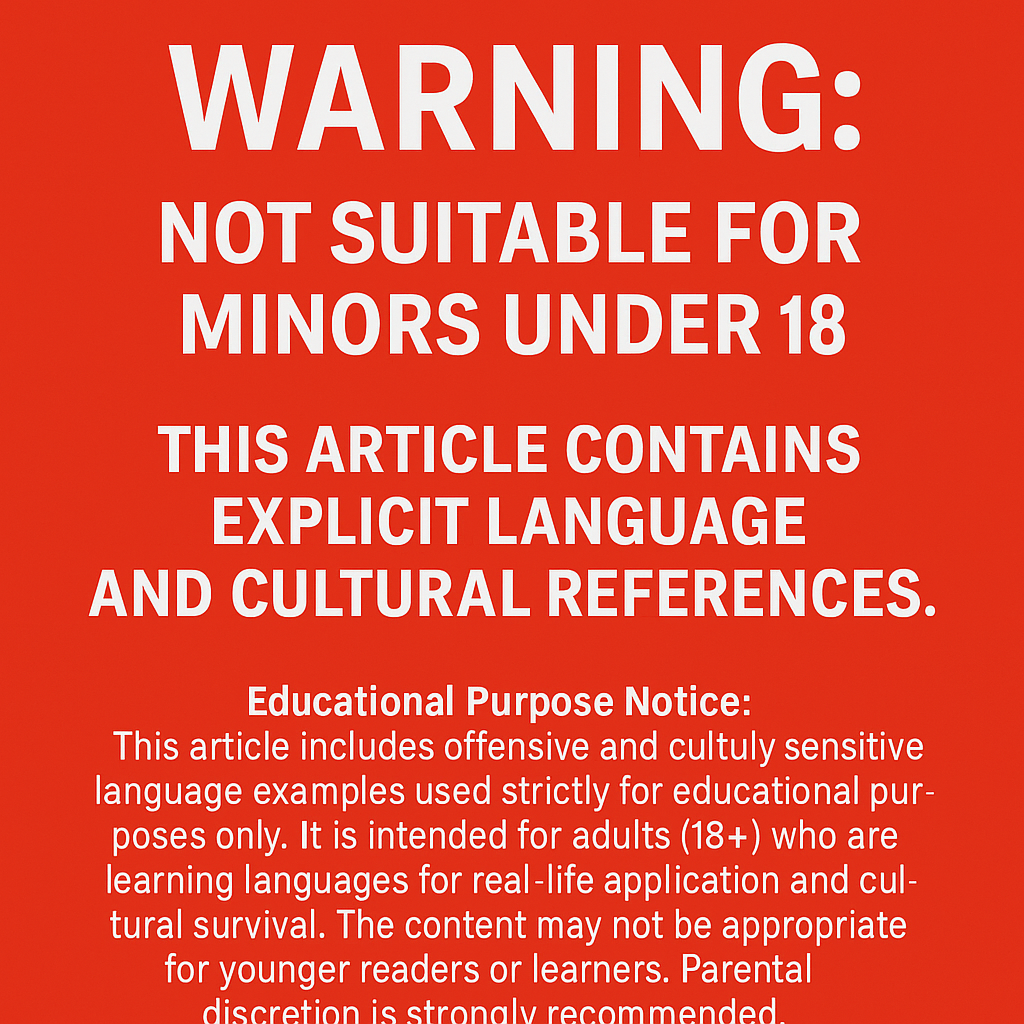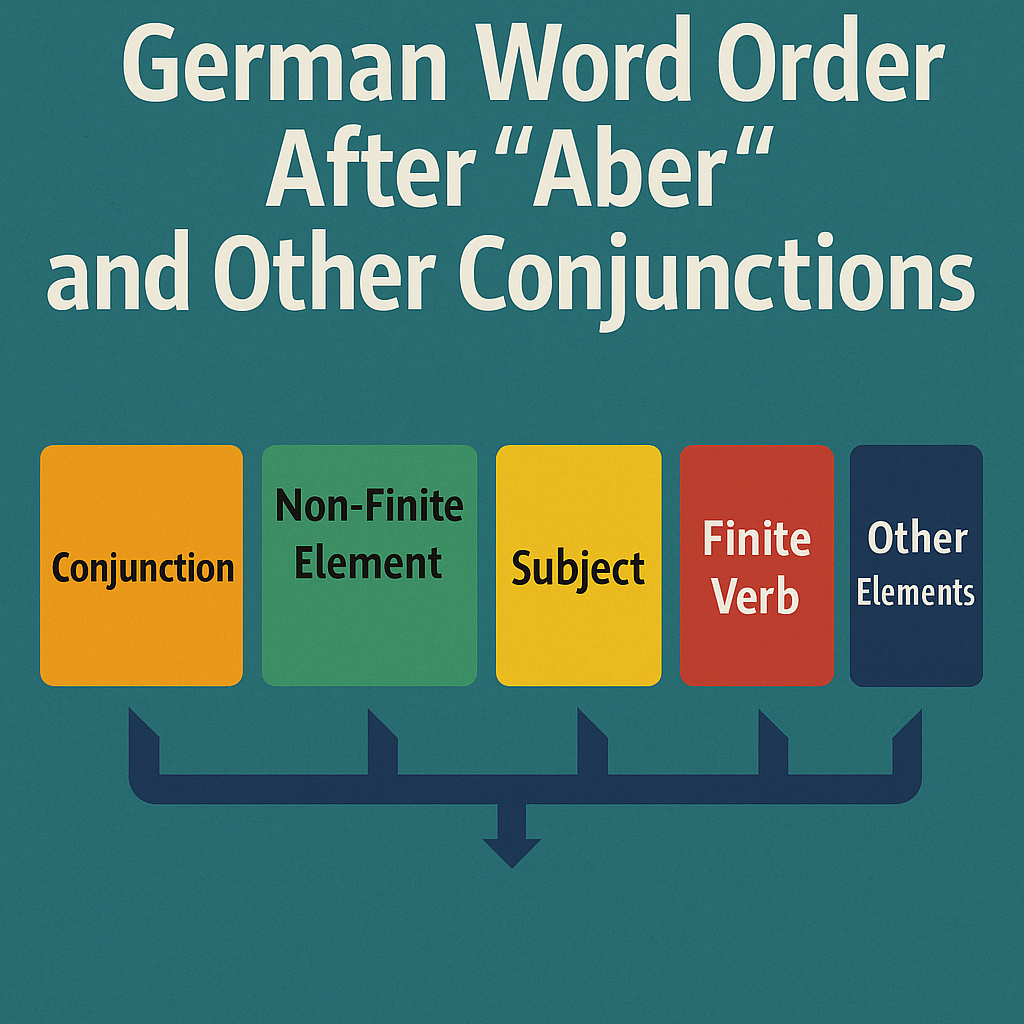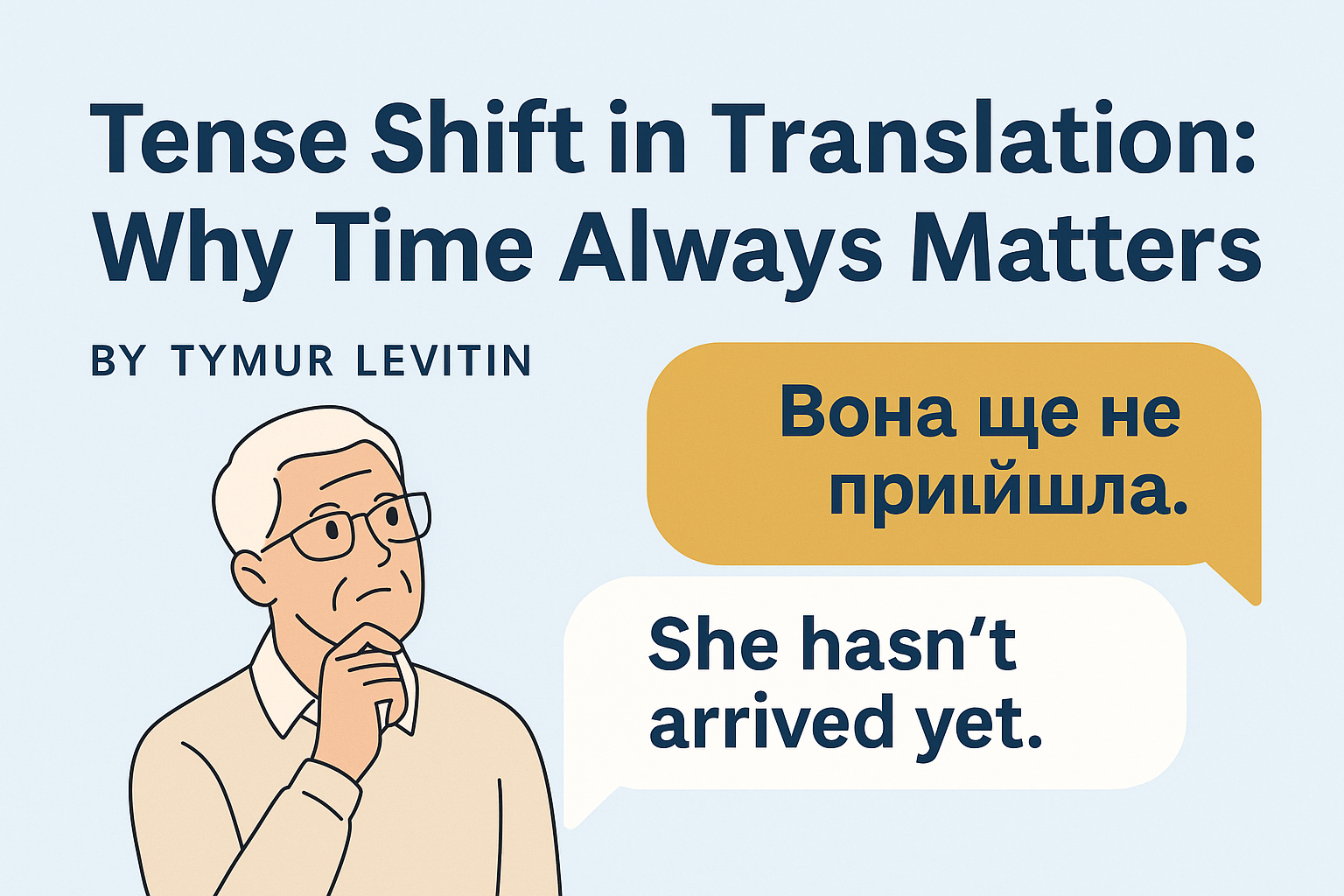⚠️ WARNING: NOT SUITABLE FOR MINORS UNDER 18
⚠️ THIS ARTICLE CONTAINS EXPLICIT LANGUAGE AND CULTURAL REFERENCES.
Reader discretion is advised.
Educational Purpose Notice:
This article includes offensive and culturally sensitive language examples used strictly for educational purposes only.
It is intended for adults (18+) who are learning languages for real-life application and cultural survival.
The content may not be appropriate for younger readers or learners. Parental discretion is strongly recommended.
- Rozpoczęcie szkoły językowej przez Tymura Levitina
It’s not just “yes-yes” — it’s a cultural trap
What You Think You’re Saying vs. What They Hear
If you’re learning German, you might think saying “ja-ja” is just a way to agree enthusiastically — like “yes-yes!”.
But in reality, “ja-ja” is not neutral. Depending on the tone, region, and context, it can be heard as:
- Sarcasm
- Passive-aggressive dismissal
- Reference to Nazi-era speech
- Or even — in some cases — a vulgar or sexual subtext
Yes, really.
What “Ja-Ja” Can Actually Mean
In some dialects and informal speech, “ja-ja” carries a heavy undertone of irony.
Similar to English “yeah, yeah, whatever” or Russian “ага-ага, расскажи ещё”, it may imply:
“Yeah sure, I don’t believe you.”
“Yeah, whatever, go on…”
“Попизди-попизди…” — in Russian, a dismissive phrase meaning “keep talking nonsense.”
In this context, the word “ja” repeated twice sounds condescending, even vulgar.
A Darker Association — “Jawohl” and the Nazi Echo
In parts of Germany and Austria, especially among older generations or in formal settings, saying “ja-ja” may unintentionally echo Nazi military speech, especially if said with a strong, sharp tone.
- “Jawohl, Herr Hauptmann!” — was a common phrase of obedience in Nazi-era military ranks.
- A clipped “ja-ja” can sound dangerously close to this rhythm, especially with a raised voice or military posture.
Even today, Germans are deeply sensitive to such echoes. What sounds like simple repetition to a foreigner may bring up historical trauma for others.
Vulgarity in Certain Contexts
Let’s be blunt — sometimes, “ja-ja” is not just sarcastic.
Depending on pronunciation, mimicry, and especially if it’s uttered in a joking tone, it can sound like a sexual reference lub mocked moaning — especially in adult slang or media.
In some regions, this can remind people of porn movie clichés or trigger unwanted associations.
As one student once told us:
“I was just confirming something with ‘ja-ja’ in a funny tone. The German woman went silent. Later I learned she thought I was being obscene.”
What to Say Instead
There are plenty of safe, natural alternatives that German native speakers use to agree:
| Situation | Better Phrases |
|---|---|
| Neutral agreement | Na ja…, Stimmt, Genau, Richtig |
| Strong agreement | Ja, klar!, Auf jeden Fall!, Natürlich! |
| Surprise or interest | Ach so!, Echt?, Wirklich? |
| Emotional tone | Oh ja…, Doch!, Tatsächlich! |
Use these — and you’ll sound much more fluent, natural, and culturally aware.
Why Most Teachers Never Talk About This — and Why We Do
Many language schools avoid “controversial” topics.
They’ll teach you grammar.
They’ll drill vocabulary.
But they won’t tell you:
- That saying “can’t” the wrong way in the U.S. sounds like “cunt” — the English word for пизда
- That saying “ja-ja” can sound like “попизди-попизди” to a German ear
- That saying “I need toilet” is not just wrong — it’s rude
Why? Because it’s easier to pretend language is neutral.
But we know better. And we teach better.
Our Mission Is Not to Decorate You with Language — But to Protect You with It
Przy Szkoła językowa Levitin oraz Rozpoczęcie szkoły językowej przez Tymura Levitina,
we don’t just teach grammar and words.
We prepare you for survival.
All our teachers are professional translators.
We were trained not just to teach — but to decode cultures, navigate danger, and make people feel safe.
Because sometimes one wrong word — can cost you a job, a visa, a relationship, or your dignity.
In other schools, you’ll learn to talk.
With us — you’ll learn not to get burned.
Want to Learn Language That Protects, Not Betrays?
Join us:
🌐 https://levitinlanguageschool.com
🌐 https://languagelearnings.com
Autor: Tymur Levitin
Founder, Director & Head Teacher of Levitin Language School
Author’s Column: Language, Survival, and Truth
© Tymur Levitin. Wszelkie prawa zastrzeżone.
Contacts & Channels
Telegram (News): https://t.me/start_school_tymur
Telegram (Learning Communities):
– https://t.me/START_SPRACHENSCHULE_TYMUR
– https://t.me/START_LANGUAGE_SCHOOL_TYMUR
Facebook:
– Global: https://www.facebook.com/@timurlevitin
– Canada/Israel: https://www.facebook.com/englishdeutschtimurlevitin
– U.S.: https://www.facebook.com/profile.php?id=61560395143684
Instagram:
– https://www.instagram.com/timurlevitin/
– https://www.instagram.com/tymur_levitin_/
Facebook Group: https://www.facebook.com/groups/728240905385457
Blogger: https://timurlevitin.blogspot.com/
LinkedIn (School): https://www.linkedin.com/company/start-language-schoolby-tymur-levitin/
























